Covid-19 - United States, China and Russia: Great Powers Worry Public Opinion
Essentials
Introduction
During the Covid-19 crisis, of all seven democracies surveyed, most citizens were concerned about the international attitudes of the United States (70%), China (63%) and Russia (56%)
The United States considered the most influential…
and the most worrisome
The younger the respondents are, the less worried they are about the major powers
Italians are the least concerned about the attitude of the great powers
Between the United Kingdom and the United States, the “Special Relationship” is under threat
Swedes distrust their Russian neighbour
The Covid-19 crisis upsets citizens’ judgment of the great powers
The judgment on China and the United States: opposing trajectories of opinion
Mistrust of China is growing dramatically
While concern about the United States is very high, it is stabilising
The judgment on Russia reflects the idea of a power in retreat,
or even in decline
Against the backdrop of the Covid-19 crisis, this paper examines how citizens in seven democracies (Austria, France, Germany, Italy, New Zealand, Sweden, and the United Kingdom) view the influence and concern of the great powers of China, the United States and Russia.
This paper is based on data collected between 15 and 18 April 2020. Interviews were conducted using a self-administered online questionnaire. A total of 9,024 people were interviewed. Citizens’ judgements about the influence and attitudes of the three great powers (China, the United States and Russia) were measured based on the following two questions:
– “According to you, which of the following countries [China, United States, Russia] has the most influence in the world?”;
– “For each of the following powers [China, the United States, Russia], please tell us if their attitude on the international scene worries you, reassures you, or neither worries you nor reassures you”
This proposed analysis is part of an international study entitled “Citizens’ Attitudes Under COVID-19 Pandemic”, in which the Fondation pour l’innovation politique is a stakeholder. The study takes the form of a series of public opinion surveys conducted by Ipsos at regular intervals and in 20 countries. The consortium of partners comprises the Agence nationale de la recherche (ANR), the Agence française de développement (AFD), CERDICNRS, the World Bank, Cevipof (CNRS, Science Po), France Stratégie, IAST (the Toulouse School of Economics, the University of Toulouse), Hanover Universität, Harvard Business School, the University of Montreal, McGill University, Università Bocconi, the European University Institute and the University of York.
This programme aims to provide an unprecedented monitoring of public opinion in the context of the Covid-19 crisis: feelings experienced, one’s relationship to health safety, acceptance or weariness regarding the protective devices put in place or public health recommendations, etc. These surveys should enable, on the one hand, a better understanding of the way in which different publics adapt psychologically to the measures of social distancing and, on the other hand, a better apprehension of consent in relation to the measures put in place.
Victor Delage,
Director of Studies and Communications at the Fondation pour l'innovation politique.
Dominique Reynié, Executive director of the Fondation pour l'innovation politique
Victor Delage
Victor Delage, Willy Delvalle, Anne Flambert, Madeleine Hamel, Katherine Hamilton, Matthieu Hanisch, Loïse Lyonnet
Houssem Eddine Bahi
Katherine hamilton
Aifang Ma
Willy Delvalle
Julien Rémy
- In the seven democracies surveyed (Austria, France, Germany, Italy, New Zealand, Sweden, the United Kingdom), the majority (60%) of those surveyed identified the United States as the most influential power, far ahead of China (23%). Russia (5%) is marginalized.
- If, in terms of public opinion, the United States remains the largest power, this assessment is retracting (68% in 2018, 60% in 2020).
- 70% of respondents express worry regarding the attitude of the United States, a higher level of concern than that of the authoritarian Chinese (63%) and Russian (56%) regimes.
- Between 2018 and 2020, concern about the United States is almost stable (68% in 2018, 70% in 2020).
- The “Special Relationship” between the United Kingdom and the United States is under threat.
- The proportion of respondents for whom China is the most influential power increased from 17% in September 2018 to 23% in April 2020.
- Between September 2018 and April 2020, the proportion of respondents concerned about China increased by 20 points (43% in September 2018, 63% in April 2020).
- Worry about China (43% in 2018, 63% in 2020) is now higher than worry about Russia (64% in 2018, 56% in 2020).
- The younger the respondents are, the less worried they are about the major powers.
- Italians are the least concerned about the attitude of the great powers.
- Swedes are the most concerned about Russia (70%, 14 points above the average for all seven countries).
Against the backdrop of the Covid-19 crisis, this paper examines how citizens in seven democracies (Austria, France, Germany, Italy, New Zealand, Sweden, and the United Kingdom) view the influence and concern of the great powers of China, the United States and Russia.
This proposed analysis is part of an international study entitled “Citizens’ Attitudes Under COVID-19 Pandemic”, in which the Fondation pour l’innovation politique is a stakeholder. The study takes the form of a series of public opinion surveys conducted by Ipsos at regular intervals and in 20 countries. The consortium of partners comprises the Agence nationale de la recherche (ANR), the Agence française de développement (AFD), CERDI- CNRS, the World Bank, Cevipof (CNRS, Science Po), France Stratégie, IAST (the Toulouse School of Economics, the University of Toulouse), Hanover Universität, Harvard Business School, the University of Montreal, McGill University, Università Bocconi, the European University Institute and the University of York.
This programme aims to provide an unprecedented monitoring of public opinion in the context of the Covid-19 crisis: feelings experienced, one’s relationship to health safety, acceptance or weariness regarding the protective devices put in place or public health recommendations, etc. These surveys should enable, on the one hand, a better understanding of the way in which different publics adapt psychologically to the measures of social distancing and, on the other hand, a better apprehension of consent in relation to the measures put in place. All the data from the survey is available to the public in open data on data.fondapol.org.
This paper is based on data collected between 15 and 18 April 2020. Interviews were conducted using a self-administered online questionnaire. A total of 9,024 people were interviewed.
Citizens’ judgements about the influence and attitudes of the three great powers (China, the United States and Russia) were measured based on the following two questions:
- “According to you, which of the following countries [China, United States, Russia] has the most influence in the world?”;
- “For each of the following powers [China, the United States, Russia], please tell us if their attitude on the international scene worries you, reassures you, or neither worries you nor reassures you.”
The European Union, whose influence and attitude on the international scene has also been measured, has not been included here, this paper being limited to the analysis of data relating to powers endowed with state sovereignty.

During the Covid-19 crisis, of all seven democracies surveyed, most citizens were concerned about the international attitudes of the United States (70%), China (63%) and Russia (56%)
The United States considered the most influential…
In this paper, the average of the seven countries (Austria, France, Germany, Italy, New Zealand, Sweden and the United Kingdom) is weighted.
On average1, in the seven democracies surveyed, a large majority of citizens (60%) consider the United States to be the most influential power, far ahead of China (23%) and Russia (5%). This ranking is replicated in each of the seven countries surveyed.
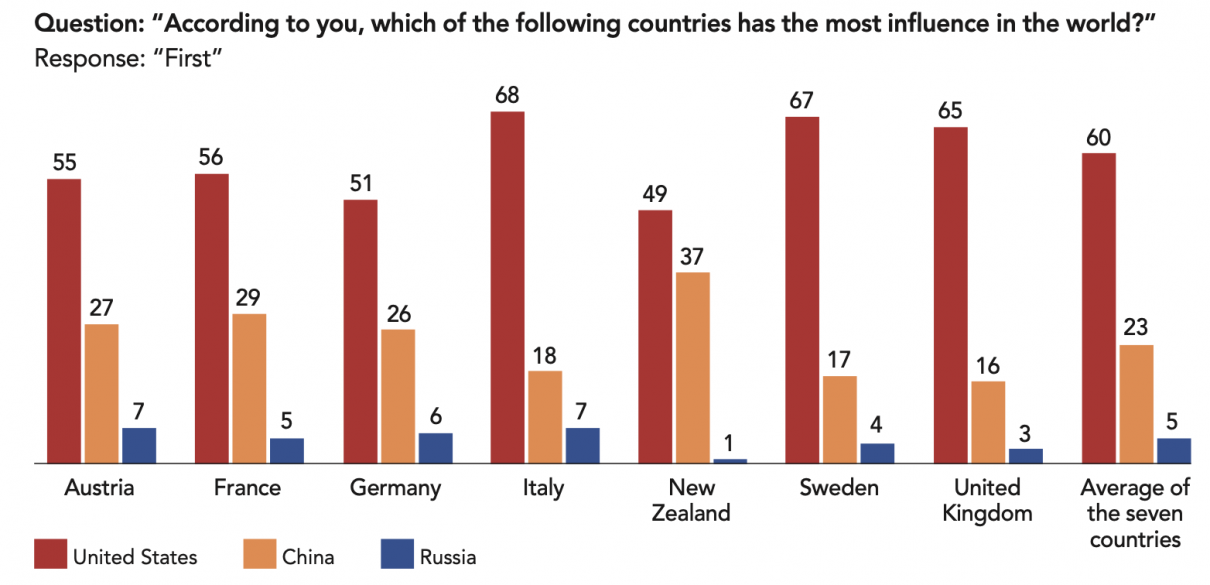
Source :
Fondation pour l’innovation politique, June 2020
and the most worrisome
The United States is also the power that worries people the most: 70% of those questioned consider the attitude of the United States on the international scene to be worrisome, and only 6% consider it reassuring. It should be noted that nearly a quarter (24%) of respondents are neither worried nor reassured by the U.S.’ international stature, which could be a sign of a changing opinion. Authoritarian powers appear to be less worrisome. The result is all the more paradoxical given that the respondents live in countries with democratic regimes: 63% of them find China’s attitude worrisome and 56% for that of Russia. What is the significance of all this concern about the United States?
Perhaps it expresses, at least in part, the criticism that would be levelled at the United States for not holding its own, running the risk of the world seeing a country with an authoritarian regime such as Communist China take over the spot of leading power. In a different way, perhaps Trump’s United States is worrisome because it is perceived less and less as a democratic regime, or as the great power whose democratic regime is in crisis.
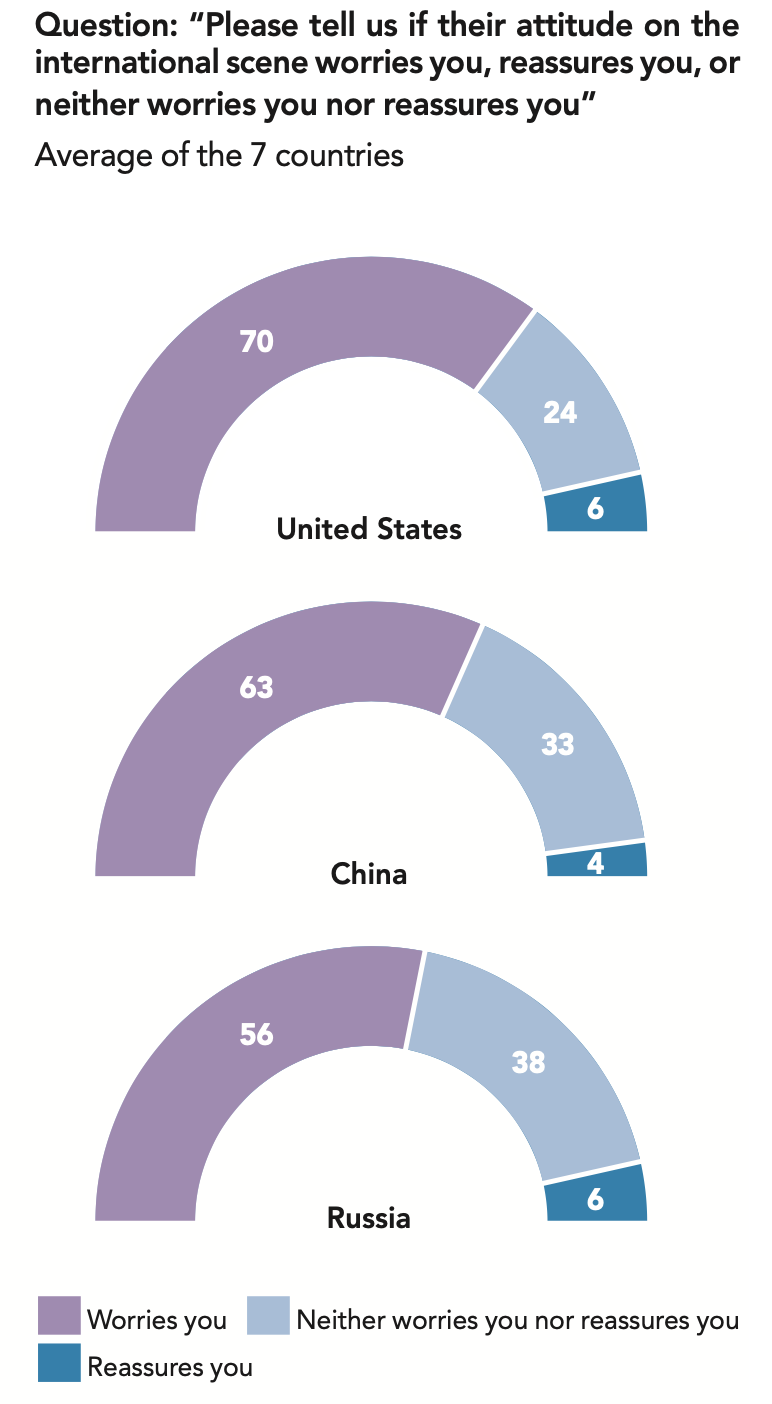
Source :
Fondation pour l’innovation politique, June 2020
The younger the respondents are, the less worried they are about the major powers
See Anne Muxel, “Generational renewal: democratic deconsolidation or restructuring?“ in Dominique Reynié (ed.), Democracies Under Pressure. A global survey, vol. I, “The issues”, Fondation pour l’innovation politique, 2019, pp. 43-46. See also “ Les jeunes Européens tentés par un pouvoir fort : ‘Il y a de la défiance à l’égard des institutions’ ” [“Young Europeans tempted by a strong power: ‘There is mistrust in institutions’”, interview with Dominique Reynié by Henri Vernet, leparisien.fr, 19 May 2019.
Considerable differences exist in the way the three powers are perceived, as shown in the example of France, where older respondents express more concern than younger ones, whether it be the behaviour of the United States (79% for those aged 60 and over versus 66% for those aged 18-34), China (71% versus 61%) or Russia (59% versus 48%). Such results might support the hypothesis of an erosion of democratic culture among new generations2, but while the levels of concern about China and Russia are lower among young people, the same gap is noticeable for the United States.
There are also marked differences between socio- professional categories. In France, the proportion of senior managers expressing concern about the behaviour of the United States (76%), China (65%) and Russia (60%) is higher than the proportion of blue-collar and unskilled workers expressing concern about the behaviour of the United States (68%), China (64%) and Russia (50%).
These data may confirm the lower sensitivity of the working classes to the threat posed by authoritarian powers, but there is a similar relative insensitivity regarding the threat posed by American power. Such data are consistent with what is known, on the one hand, about the authoritarian orientation of a significant fraction of the working classes and, on the other, about their lesser interest in issues of this type, which is part of a more widespread form of de- politicisation in this social world and a greater difficulty in perceiving its mechanisms, which also stems from the effects of levels of education, access to information, etc.
Our study highlights differences in political positioning that are worth noting. French people on the left of the political spectrum are much more worried about the attitude of the United States (86% vs. 63%) and Russia (66% vs. 49%) than those on the right. Contrastingly, fewer of those on the left (64%) are concerned about China’s authoritarian regime than those on the right (68%).
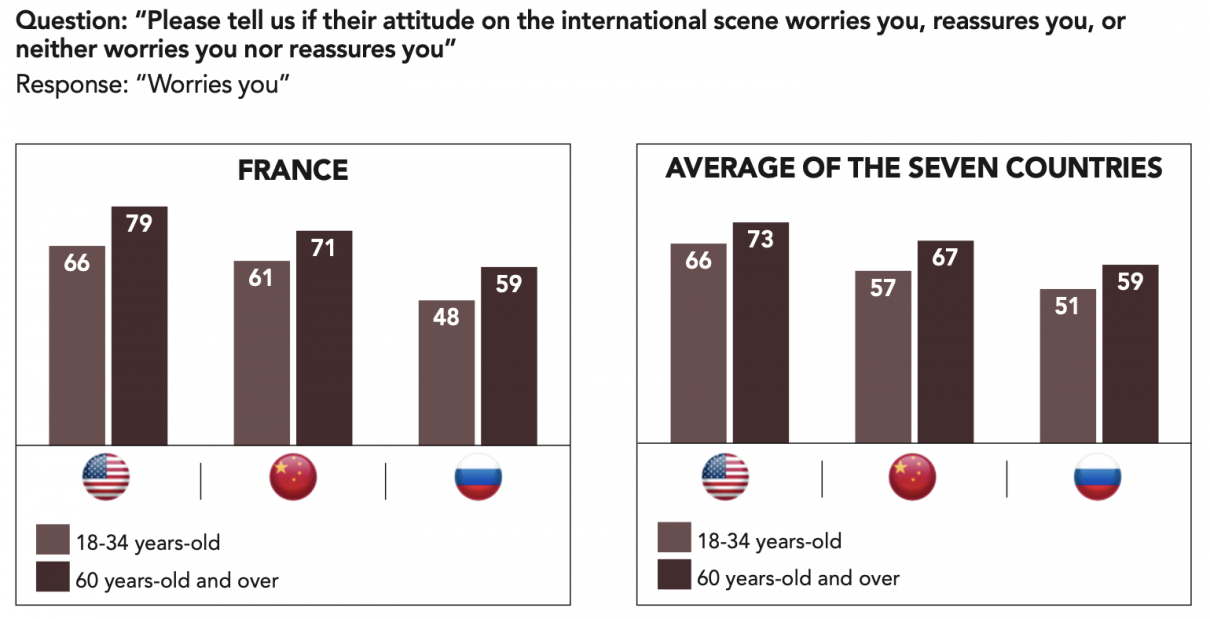
Source :
Fondation pour l’innovation politique, June 2020
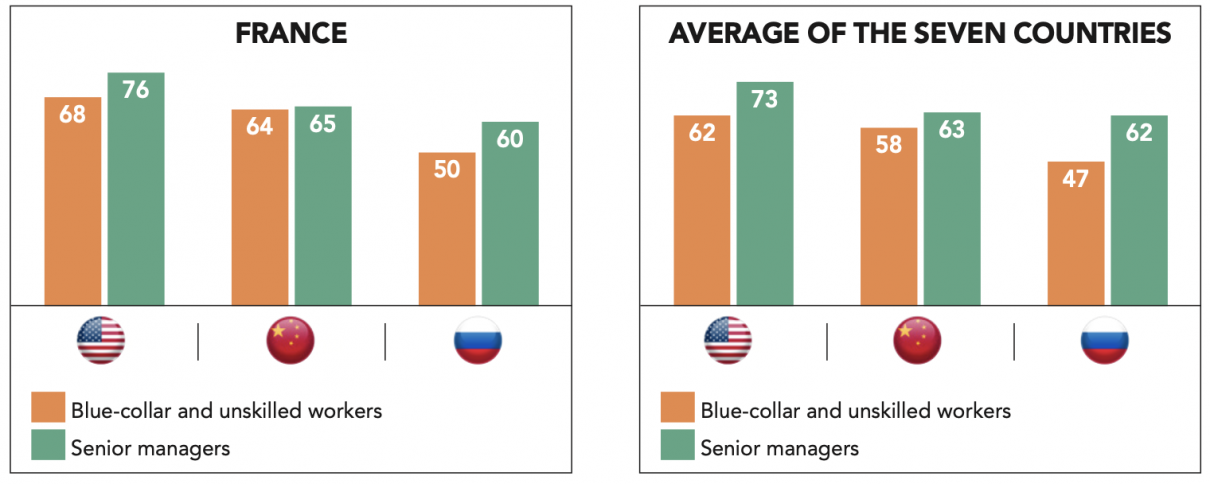
Source :
Fondation pour l’innovation politique, June 2020
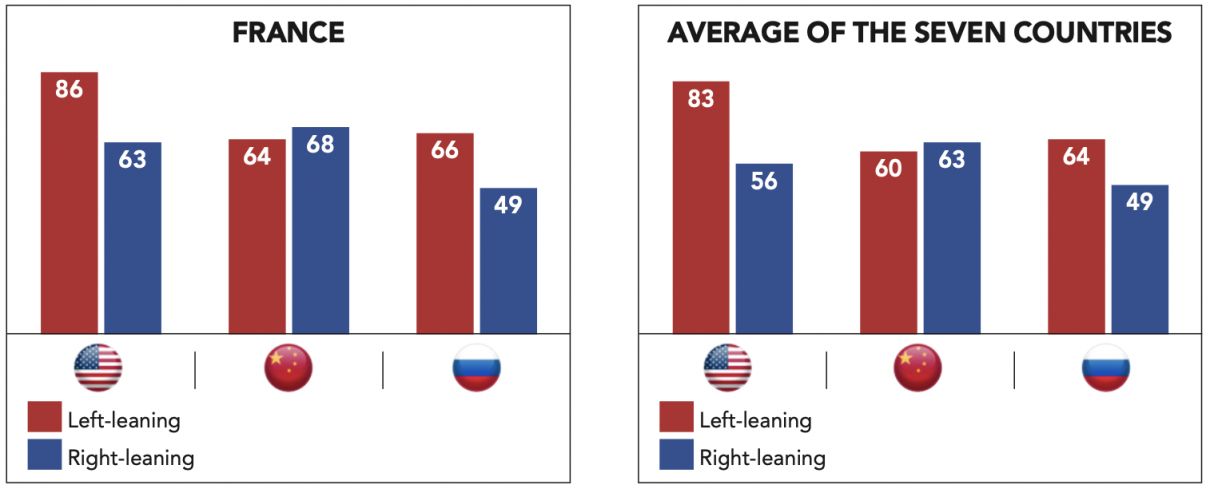
Source :
Fondation pour l’innovation politique, June 2020
Italians are the least concerned about the attitude of the great powers
The case of Italy is notable. Public opinion in Italy seems to be less afraid than elsewhere of the attitudes of the major powers on the international scene: 56% of Italians (compared to 70% for all seven countries surveyed) say they are worried about the attitude of the United States, 48% by China (compared to 63%) and 41% by Russia (compared to 56%). The feeling that the European reaction to the Covid crisis was too slow, coupled with the staging of Russian and Chinese health aid to Italy to combat the Coronavirus, may partly explain these results in Italy.
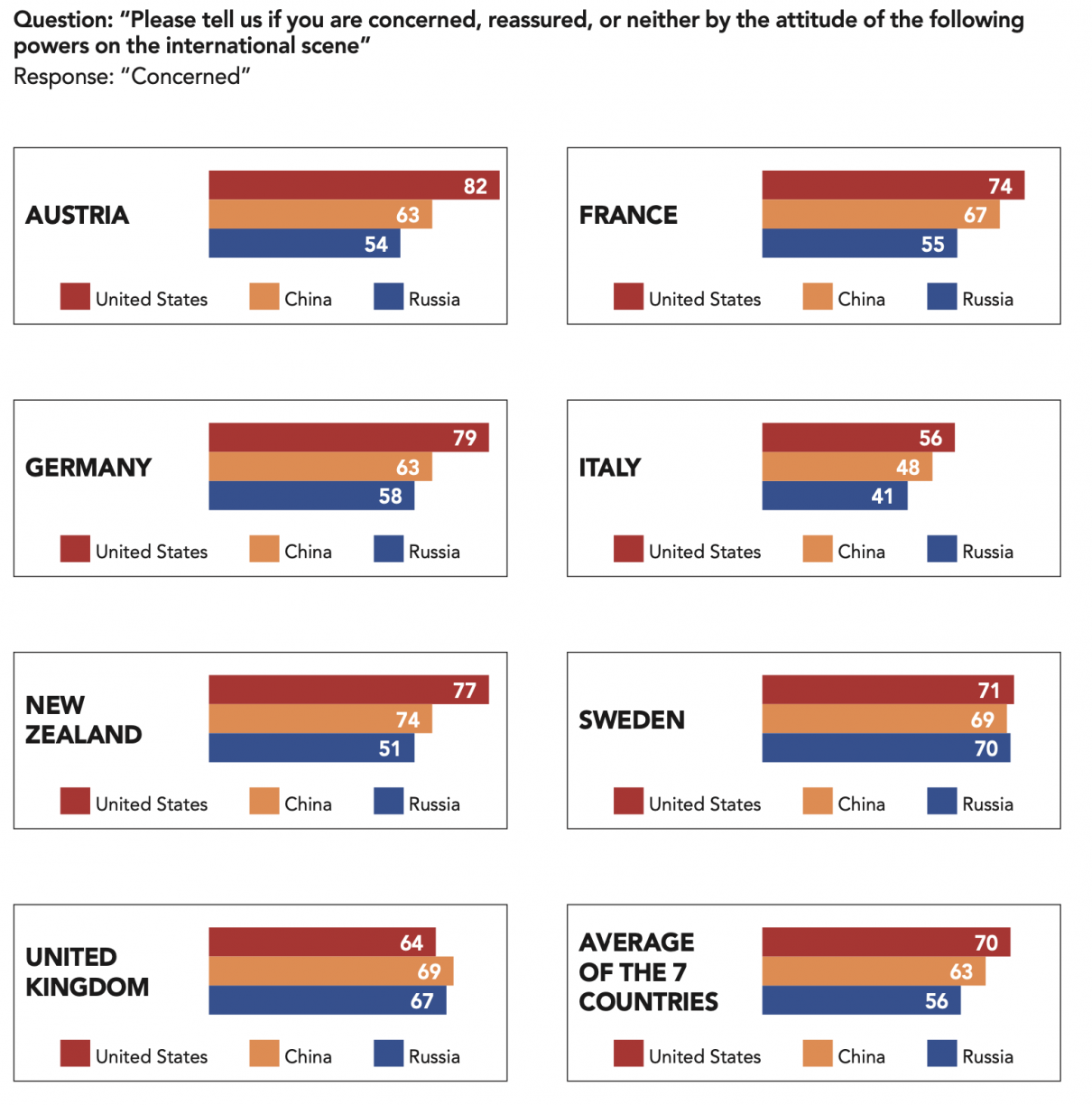
Source :
Fondation pour l’innovation politique, June 2020
Between the United Kingdom and the United States, the “Special Relationship” is under threat
The American hyper-power is considered more threatening than the authoritarian regimes of China and Russia by the citizens of six out of seven countries. The British seem to be the exception, with more people expressing concern about China (69%) or Russia (67%) than the United States (64%). It is significant to note here, however, that the United States is a source of concern for a large majority of people, including those in the UK. At the time of our previous survey in September 2018, this figure had already risen to 64%. This trend confirms the long- term establishment of a certain mistrust of British opinion towards American power. Four years after the referendum on Brexit, the United Kingdom finds itself detached from the European Union, while the British have ceased considering the United States as their natural partner.
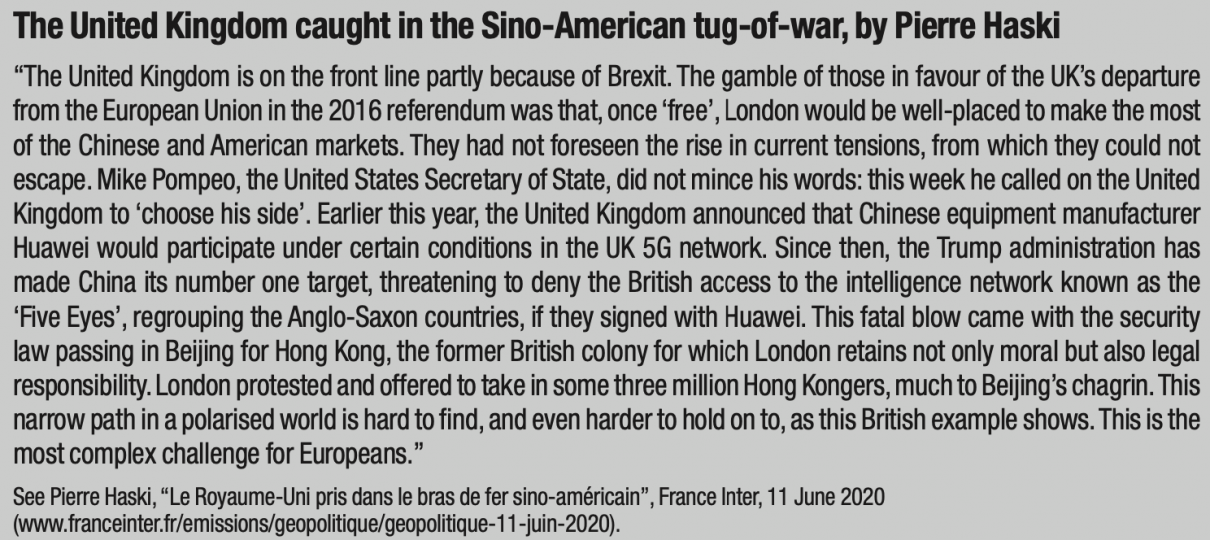
Swedes distrust their Russian neighbour
Swedes are most concerned about Russia’s behaviour on the international stage (70%, 14 points above average). This fear can be attributed to the country’s geographical position, faced with Russia’s increasing military activities in the Baltic Sea.
A comparison of the responses to the two questions regarding 3 the influence and attitude of the major powers on the international scene, asked identically in our survey “Democracies Under Pressure” 4 (administered in September 2018) and our survey “Citizens’ Attitudes Under COVID-19 Pandemic” (administered in April 2020), is used to report on changes in public opinion – one before the emergence of the Coronavirus, the other during the health crisis.

Source :
Fondation pour l’innovation politique, June 2020
The Covid-19 crisis upsets citizens’ judgment of the great powers
According to you, which of the following countries has the most influence in the world?” and “For each of the following countries, please tell us if their attitude on the international scene worries you, reassures you, or neither worries you nor reassures you”.
Dominique Reynié (dir.), Democracies Under A Global Survey, vol. I, “The issues”, and vol. II, “The countries” Fondation pour l’innovation politique, 2019.
A comparison of the responses to the two questions regarding3 the influence and attitude of the major powers on the international scene, asked identically in our survey “Democracies Under Pressure”4 (administered in September 2018) and our survey “Citizens’ Attitudes Under COVID-19 Pandemic” (administered in April 2020), is used to report on changes in public opinion – one before the emergence of the Coronavirus, the other during the health crisis.
The judgment on China and the United States: opposing trajectories of opinion
Firstly, it emerges that in less than two years, the idea of China’s domination has spread (17% in 2018 compared to 23% in 2020) in public opinion in the seven countries studied. This assessment increases by 2 points among Brits, 3 points among Italians, 4 points among Swedes, 5 points among Austrians and Germans alike, 10 points among New Zealanders and 13 points among the French.
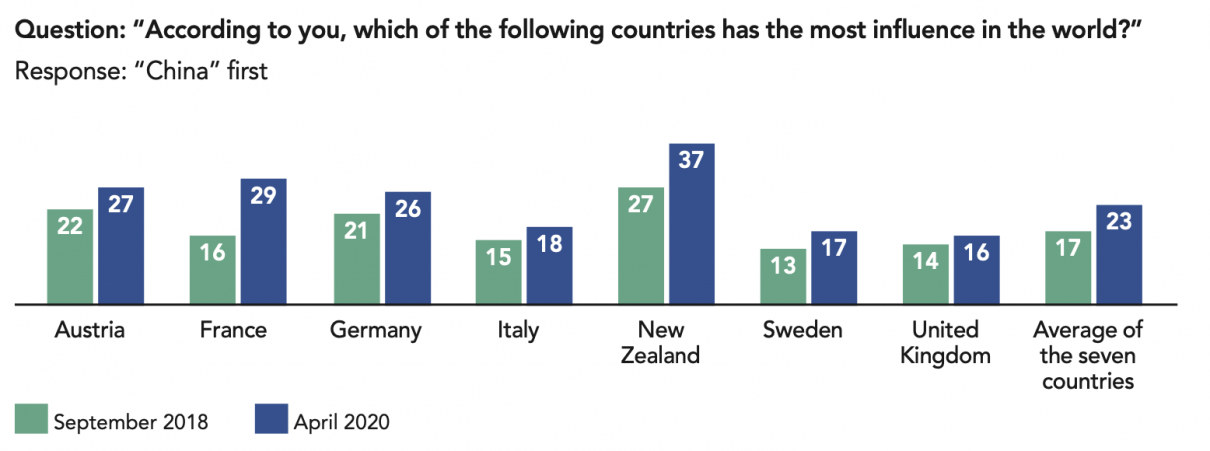
Source :
Fondation pour l’innovation politique, June 2020
Conversely, the analysis of the data shows that the idea is spreading that the United States has less influence in the world, even though American power is still considered the most influential everywhere. On average, the share of respondents who consider the United States to be the most influential power declines from 68% in September 2018 to 60% in April 2020. This decline is evident in the opinions of each of the democracies surveyed. The decline is even 10 points in Germany and Sweden, 11 points in New Zealand and 14 points in France.
Fondation pour l’innovation politique, June 2020
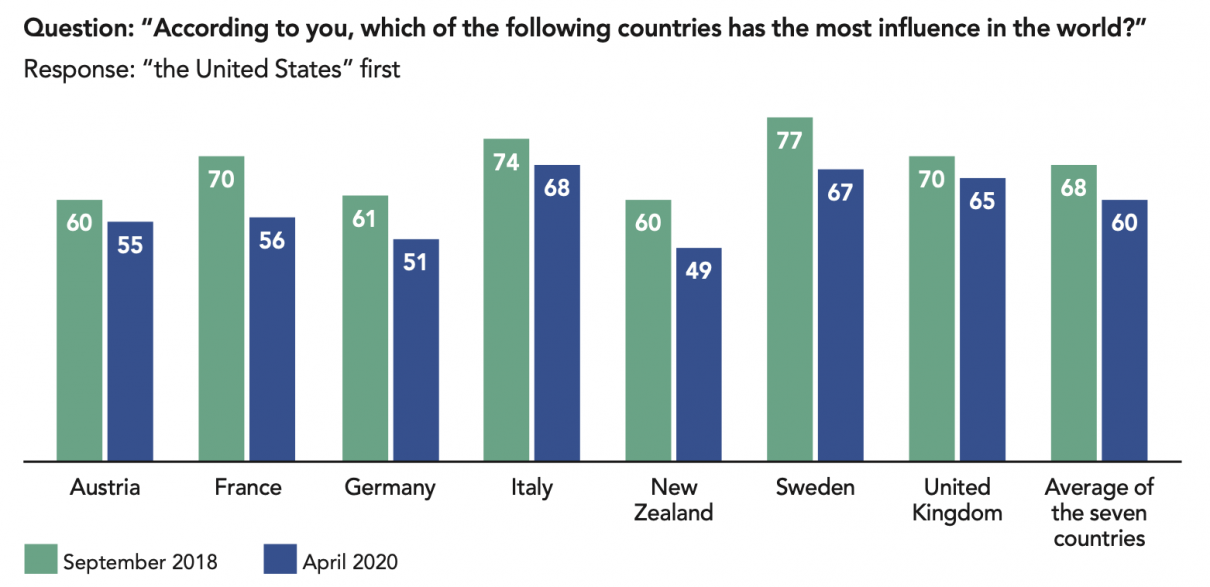
Source :
Fondation pour l’innovation politique, June 2020
However, in this three-way game, Russia is almost no longer perceived as an influential power. In the seven democracies surveyed, 5% of respondents consider Russia to be the most influential power (compared to 8% in September 2018). In April 2020, the results ranged from 1% for New Zealanders to 7% for Austrians and Italians. In France, this figure rises to 5%.

Source :
Fondation pour l’innovation politique, June 2020
Mistrust of China is growing dramatically
While China (63%) is relatively less concerned than the United States (70%) and more concerned than Russia (56%), a comparison with the 2018 data shows that public concern regarding China is rising sharply: it greatly increases from 43% in 2018 to 63% in 2020, and more precisely by 34 points in Sweden (from 35% to 69%), 27 points in New Zealand (from 47% to 74%), 25 points in Germany (from 38% to 63%), 24 points in Austria (from 39% to 63%) and Great Britain (from 45% to 69%) and 19 points in France (from 48% to 67%). In Italy, this fear, though less important, is nonetheless up 4 points to almost nearly the population (from 44% to 48%).
China’s soft power strategy, which for a time allowed the country to increase its role without too much concern, is no longer working. In the context of the Coronavirus, there is increasing criticism of this authoritarian regime, which appears to have heavily concealed information that would have allowed for a faster and appropriate international response to the health crisis.
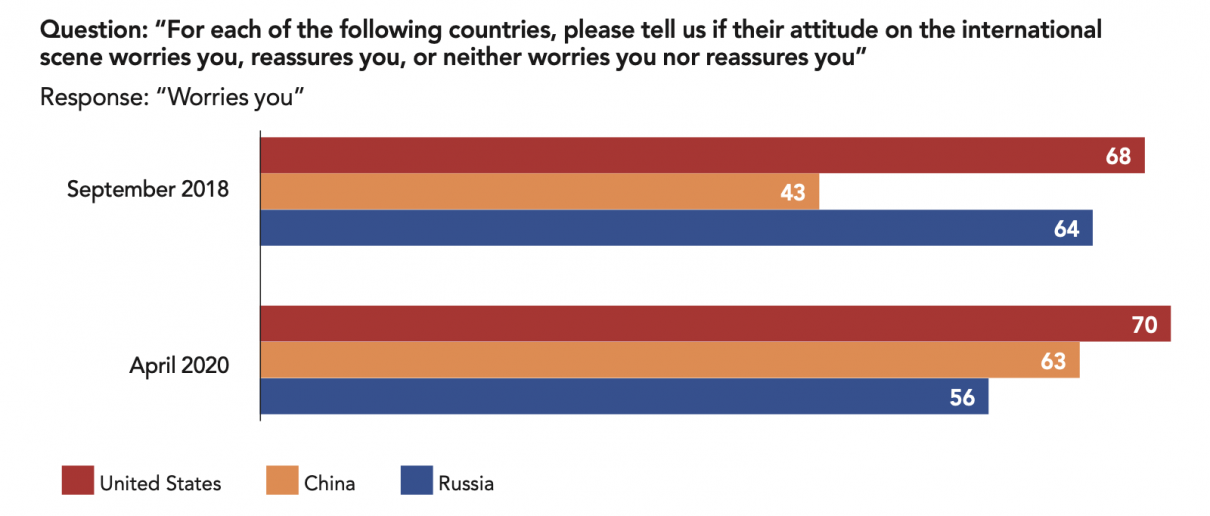
Source :
Fondation pour l’innovation politique, June 2020
While concern about the United States is very high, it is stabilising
Concern about the United States increases by 2 points, from 68% in 2018 to 70% in 2020. This fear increases in five of the seven countries surveyed. If the variations are less significant than for China, it is primarily because the level of concern about the United States that can be measured in public opinion was already very high. Thus, in April 2020, 82% of Austrians (compared to 76% in 2018) were concerned about the attitude of the American power on the international scene; this is also the case for 79% of Germans (compared to 75% in 2018), 77% of New Zealanders (compared to 67%), 74% of the French (compared to 71%), and 71% of Swedes (compared to 70%). For the British, this figure remains stable at 64% in both 2018 and 2020.
Finally, while Italians are the least concerned about China and Russia, they are also, as we have seen, the least concerned about the behaviour of the United States (52%). Moreover, compared to 2018 (58%), there is even a significant drop in this negative judgment.
The judgment on Russia reflects the idea of a power in retreat,
or even in decline
Across public opinion, compared to the United States and China, Russia is the power that worries the least (56%). If we compare this data with our 2018 international survey “Democracies Under Pressure”, we can see that concern about China (from 43% in 2018 to 63% in 2020) is now higher than concern about Russia (from 64% in 2018 to 56% in 2020).

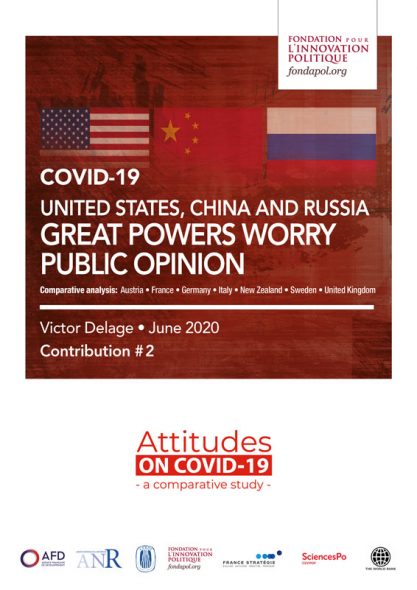
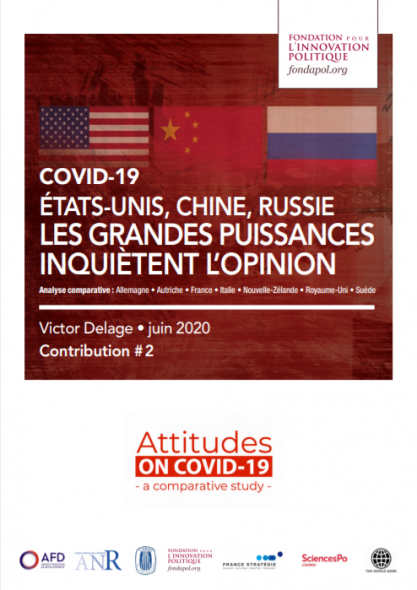
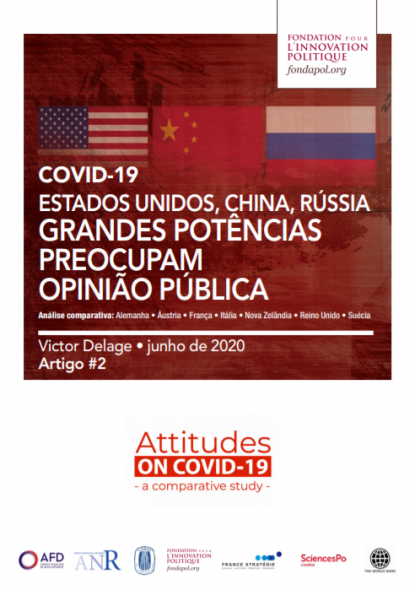
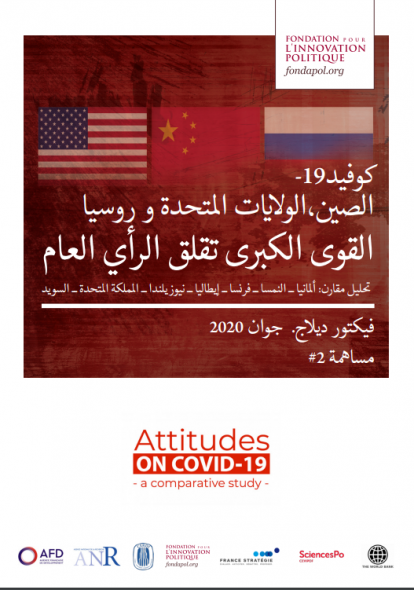
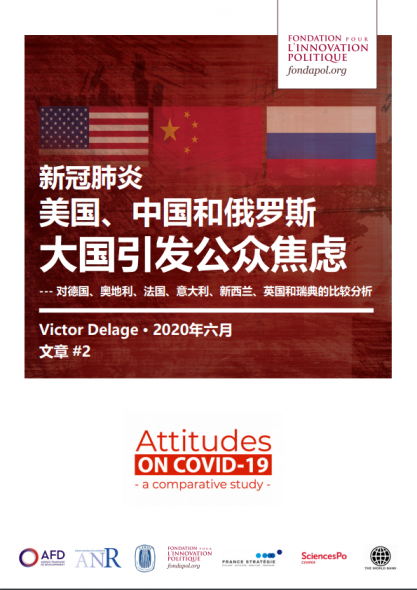
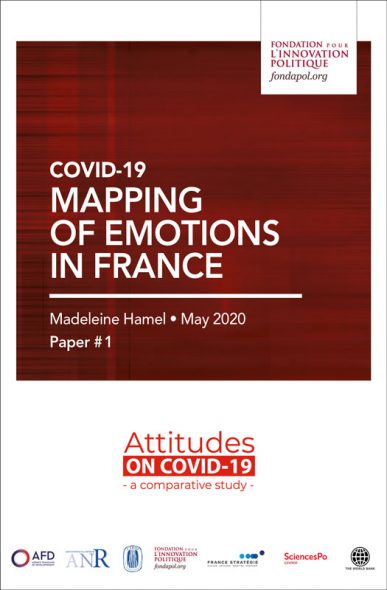
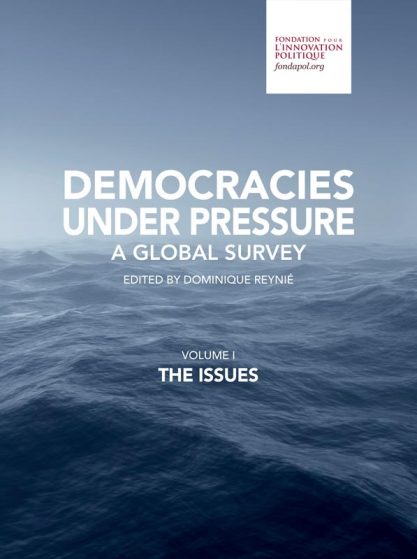
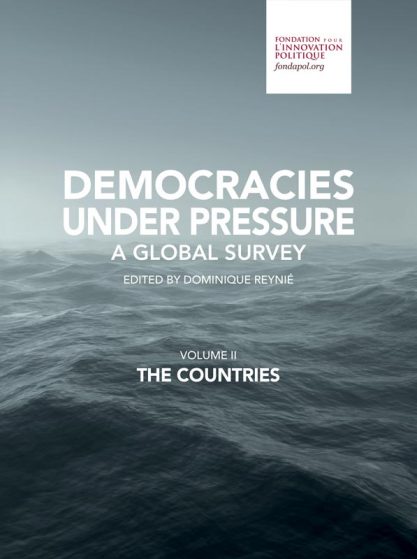

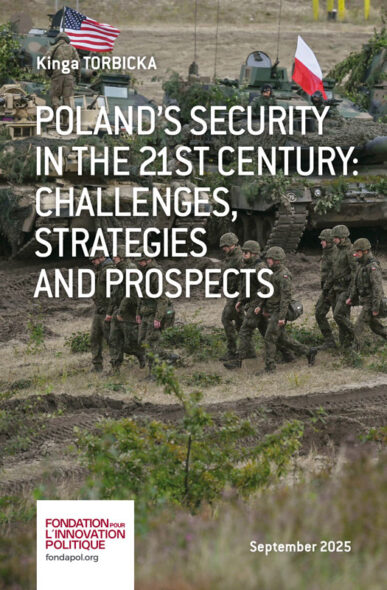
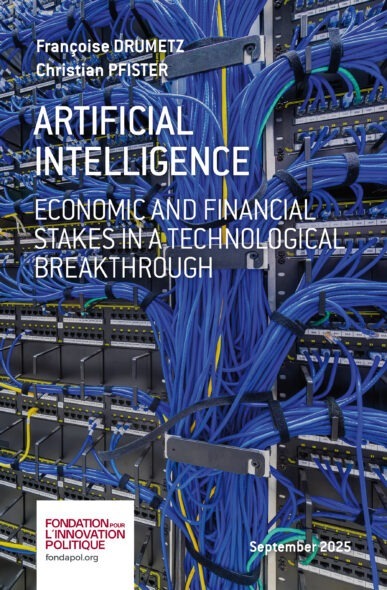
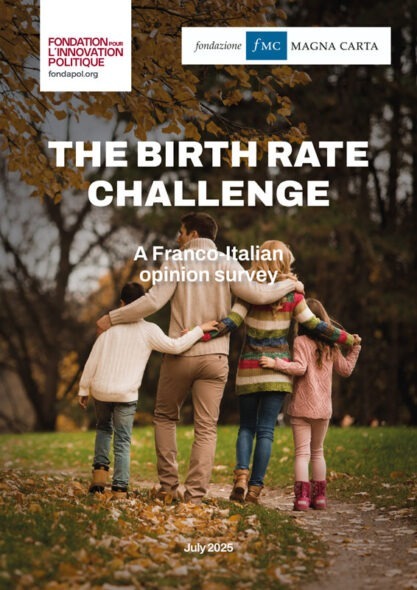
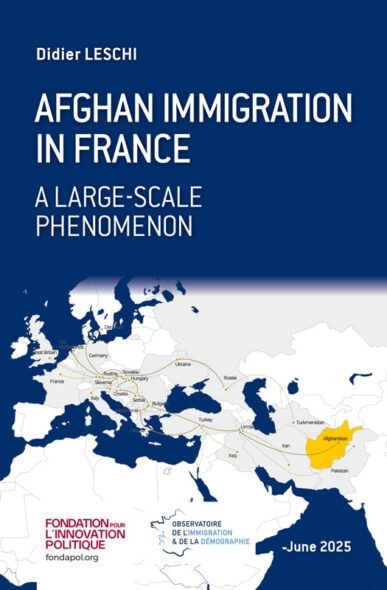
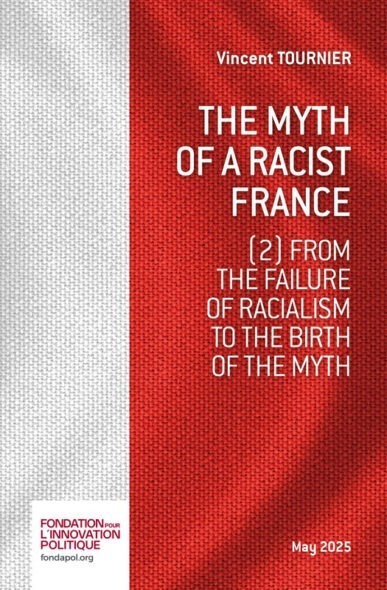
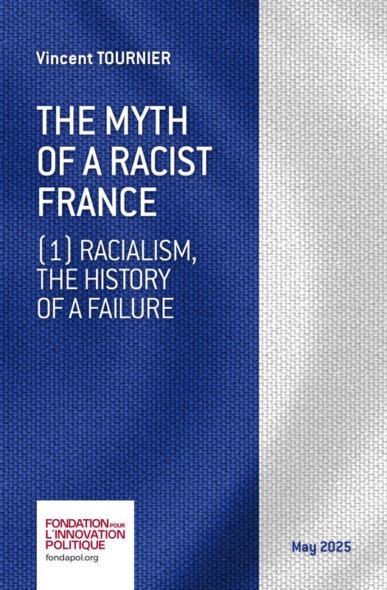
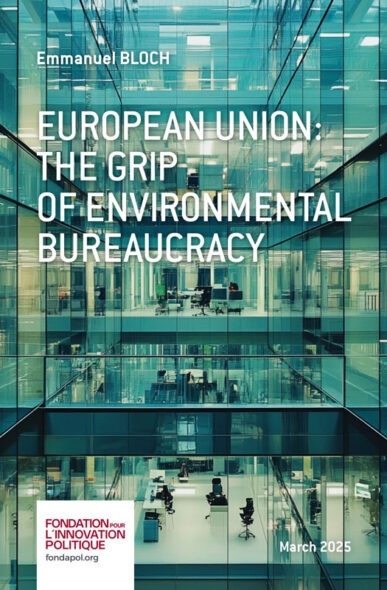
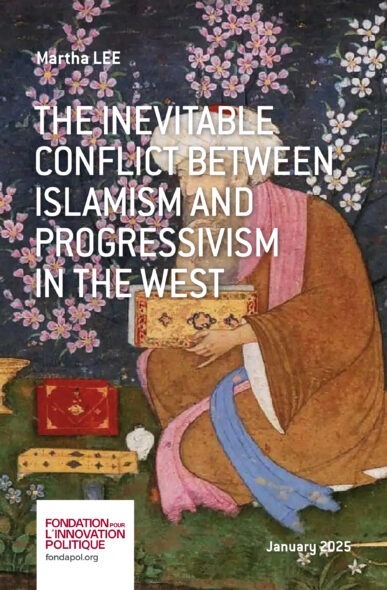
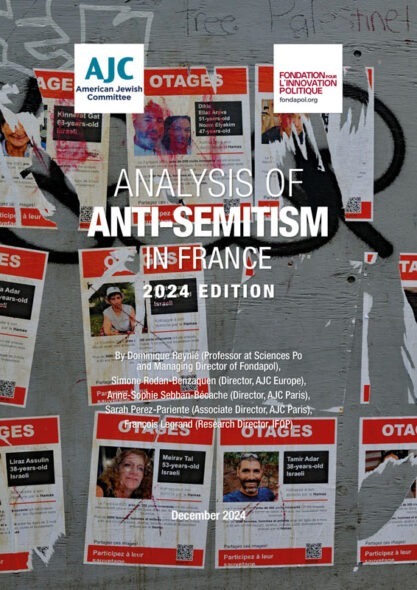
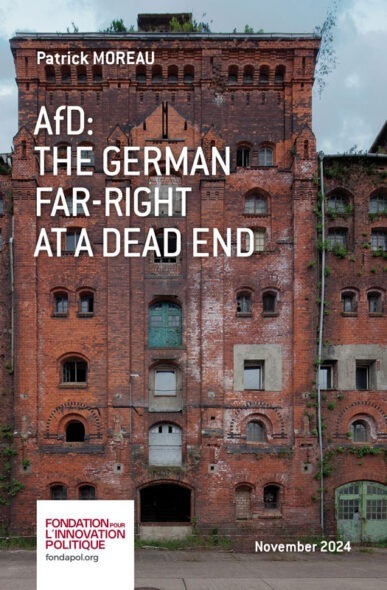
No comments.